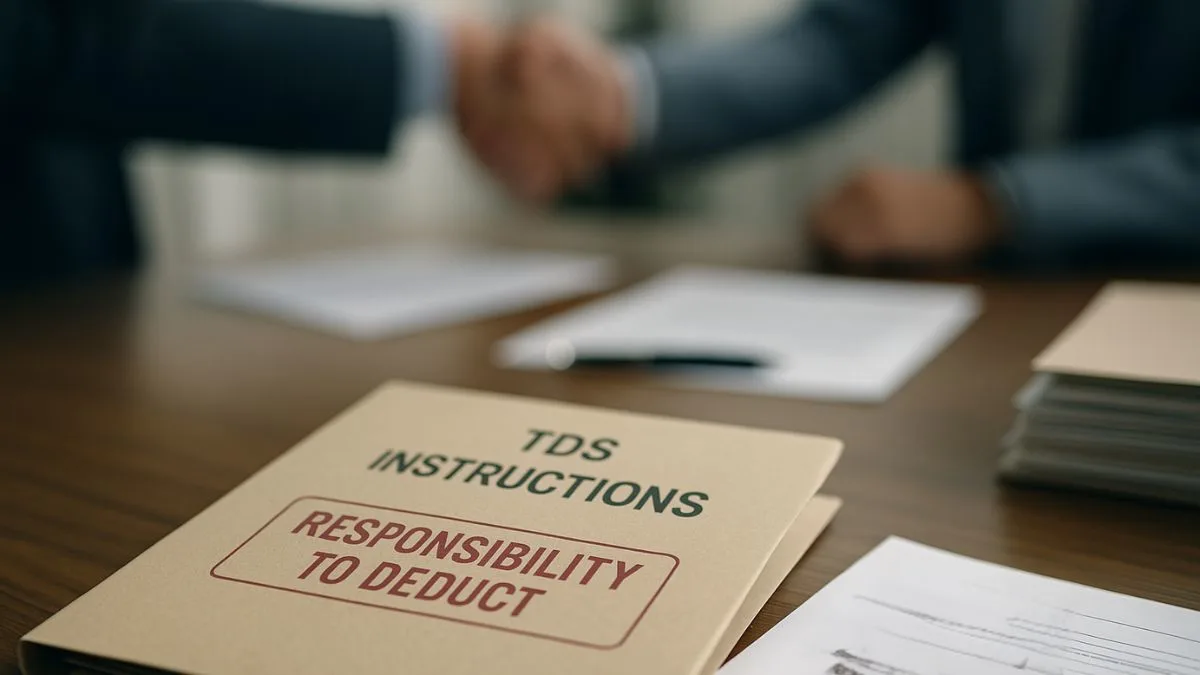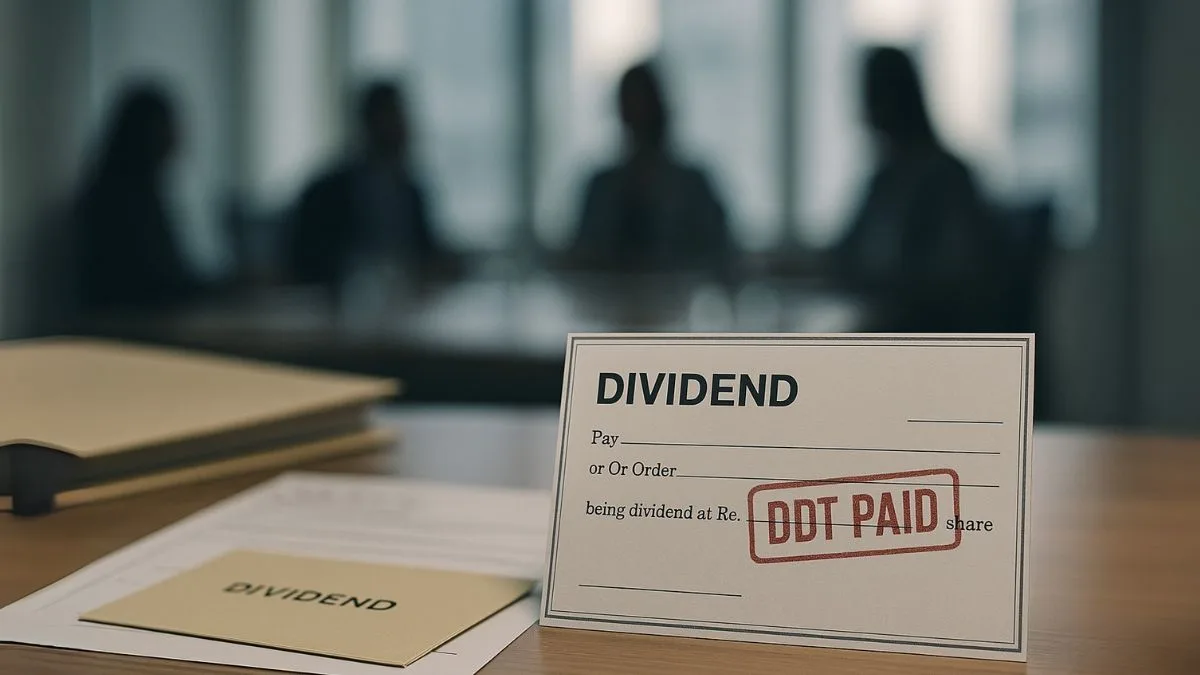
Every income a person earns doesn’t necessarily come from salary, business, or capital gains. Sometimes, individuals or companies receive income that doesn’t fall under any of these categories — like interest from bank deposits, rent from sub-letting, or dividend income. The law classifies such income under the head “Income from Other Sources.”
However, earning this kind of income often involves certain expenses — legal fees, collection charges, or administrative costs. Recognizing this, Section 57(iii) of Income Tax Act steps in as a relief mechanism. It allows taxpayers to claim deductions for expenses incurred wholly and exclusively for the purpose of earning such income.
Let’s understand what this section covers, how it applies, and what courts have said about it over time.
Understanding Section 57(iii) – The Core Principle
Section 57 deals with deductions that can be claimed under the head “Income from Other Sources.”
Clause (iii) of this section is particularly significant. It allows taxpayers to claim deductions for any other expenditure (not being capital expenditure or personal expenses) that is laid out or expended wholly and exclusively for the purpose of making or earning such income.
In simpler terms —
If you have spent money directly to earn income that falls under the “other sources” category, that expense can be claimed as a deduction while calculating your taxable income.
Key Conditions to Claim Deduction under Section 57(iii)
To prevent misuse, this provision comes with certain specific conditions:
- Expense must be incurred for earning income.
The expenditure must have a direct connection with the income being earned. - Expense must be ‘wholly and exclusively’ for that purpose.
If the expense serves multiple purposes (personal or business), only the part connected to earning income qualifies. - Actual expenditure is required.
Hypothetical or estimated costs can’t be claimed. There must be a real, incurred expense. - Expense should not be capital in nature.
For example, purchasing a new machine or property won’t qualify, but maintenance or administrative costs may. - Income should be taxable.
If the income is exempt under another section (for example, dividend from certain domestic companies), expenses related to it can’t be claimed.
Illustrative Examples
Here are a few real-world examples to clarify the applicability of Section 57(iii):
- Example 1 – Interest on Borrowed Funds:
Suppose you borrow money and invest it in a fixed deposit to earn interest income. The interest you pay on the loan can be claimed as a deduction under Section 57(iii) since it’s incurred wholly and exclusively for earning that interest. - Example 2 – Legal or Administrative Expenses:
A retired individual hires a tax consultant to manage and collect rent from a sub-let property. The consultancy charges are deductible since they are directly related to earning that rental income. - Example 3 – Winding-up Expenses:
When a company is in the process of closing down, certain administrative and essential expenses incurred during the winding-up process can be deducted if they relate to maintaining or collecting outstanding income (like interest, dividends, or recovery dues).
Judicial Interpretations and Case Laws
Over time, courts have provided a detailed understanding of how Section 57(iii) should be applied:
- CIT vs. Rajendra Prasad Moody (1978):
The Supreme Court held that it’s not necessary for the income to actually be earned. Even if the expenditure was made for the purpose of earning income, it is eligible for deduction. - CIT vs. Smt. Virmati Ramkrishna (1981):
The Gujarat High Court ruled that the nexus between the expenditure and the earning of income must be real and not remote. - Eastern Investments Ltd. vs. CIT (1951):
The court clarified that the expenditure must be voluntary, made on grounds of commercial expediency, and in order to earn income.
Through these rulings, a consistent principle emerges — what matters most is the purpose and exclusivity of the expense.
Deductions Allowed under Section 57
While Section 57(iii) covers general deductions, the broader Section 57 also includes specific deductions for certain income types:
|
Type of Income |
Relevant Clause |
Eligible Deduction |
|
Dividend Income |
57(i) |
Interest on borrowed capital for investment in shares |
|
Family Pension |
57(iia) |
₹15,000 or 1/3rd of pension, whichever is lower |
|
Income from Other Sources (General) |
57(iii) |
Expenses incurred wholly and exclusively for earning income |
|
Interest on Compensation |
57(iv) |
50% deduction allowed automatically |
Among these, Section 57(iii) is the most flexible and widely used clause because it covers all incidental income not specified elsewhere.
Connection Between Section 57(iii) and ‘Deduction from Other Income’
When income doesn’t fall under salary, house property, business, or capital gains, it defaults to the category of “Income from Other Sources.”
This is where taxpayers can use Section 57(iii) to claim deduction from other income.
Common examples include:
- Interest on securities or savings accounts
- Rental income from sub-letting
- Director’s sitting fees
- Examination income of professionals
- Dividend from foreign companies
- Royalty or commission income
By allowing deduction of expenses that are incurred wholly and exclusively for the purpose of earning, this section ensures that only the net income — and not the gross receipt — is taxed.
Expenses Generally Allowed under Section 57(iii)
Here are typical expenses accepted by tax authorities as deductible under this provision:
- Interest paid on loans taken to earn interest income
- Bank charges or collection commission
- Remuneration or professional fees to tax consultants or legal advisors
- Traveling or conveyance expenses incurred to manage investments
- Administrative and essential expenses incurred during the winding-up process
- Stationery, postage, or clerical expenses related to earning income
However, expenses of a personal nature, capital investments, or those indirectly connected to income generation are not deductible.
Expenses Not Allowed under Section 57(iii)
While the provision is liberal, it excludes certain categories of expenses:
- Personal Expenses:
Any expense for personal benefit, like household or entertainment costs, is disallowed. - Capital Expenditure:
Payments for acquiring assets or investments can’t be claimed as deductions. - Expenses not linked to income:
Expenditure with no clear nexus to income generation (e.g., charitable donations) isn’t deductible. - Expenses relating to exempt income:
For instance, costs associated with tax-free dividends or agricultural income are not allowed.
How to Claim Deduction under Section 57(iii)
Claiming this deduction is quite straightforward but requires documentation and clarity of purpose.
Step 1: Identify income taxable under “Income from Other Sources.”
Step 2: Record all expenses directly related to earning that income.
Step 3: Maintain evidence like invoices, bank statements, or agreements.
Step 4: Reflect the deductions in your ITR under the relevant schedule.
Step 5: Ensure the expenses are “wholly and exclusively” linked — even partial personal use may lead to disallowance.
Illustration – Practical Computation
Let’s assume Mr. Rohan earns the following during FY 2024–25:
- Interest from Bank Deposits – ₹1,20,000
- Dividend from foreign company – ₹30,000
- Expenses:
- Consultancy Fee for managing investments – ₹10,000
- Interest on borrowed funds – ₹20,000
Computation under Section 57(iii):
|
Particulars |
Amount (₹) |
|
Total Income from Other Sources |
1,50,000 |
|
Less: Deductions under Section 57(iii) |
30,000 |
|
Taxable Income under ‘Other Sources’ |
1,20,000 |
Thus, Mr. Rohan’s taxable income reduces because the expenses were incurred wholly and exclusively for the purpose of earning the said income.
Common Misconceptions
- Myth 1: Expenses are allowed only if income is earned.
Truth: Even if income isn’t received, as long as the expense was genuinely incurred to earn income, deduction is allowed. - Myth 2: Any expense connected to income is deductible.
Truth: It must be wholly and exclusively for that purpose. Mixed or personal expenses are not allowed. - Myth 3: You can claim deduction even for exempt income.
Truth: Expenses for tax-free income cannot be claimed under Section 57(iii).
Importance of Section 57(iii) in Tax Planning
This section is often overlooked but extremely useful in tax management. By accounting for genuine expenses related to incidental income, taxpayers can legally reduce their taxable liability.
For individuals, it offers relief when earning passive income like interest or rent. For companies, it ensures fairness during wind-up or asset liquidation, as administrative and essential expenses incurred during the winding-up process can still be deducted.
It also maintains the integrity of taxation — ensuring only net income, not gross receipts, gets taxed.
Key Takeaways
|
Aspect |
Explanation |
|
Applicable Head of Income |
Income from Other Sources |
|
Allowed Deduction |
Expenditure wholly and exclusively incurred to earn income |
|
Type of Expenses |
Administrative, legal, interest, consultancy, collection costs |
|
Not Allowed |
Capital or personal expenditure |
|
Judicial View |
Even expenses for prospective income are eligible |
|
Best Use Case |
Deduction from other income like interest or dividends |
Conclusion
Section 57(iii) of Income Tax Act is a vital relief mechanism that ensures fairness in taxation. It recognizes that income doesn’t come free — there are always costs involved in earning it. By allowing the deduction of expenses incurred wholly and exclusively for the purpose of earning, the law encourages transparency and logical assessment of “income from other sources.”
Whether you are an investor managing interest income or a company settling accounts during closure, understanding this provision helps you claim every legitimate deduction you deserve.
👉 Need expert help in maximizing your tax deductions under Section 57(iii)?
Visit Callmyca.com — our CA team will help you plan, compute, and file your taxes smartly, ensuring you never miss a rightful claim.










